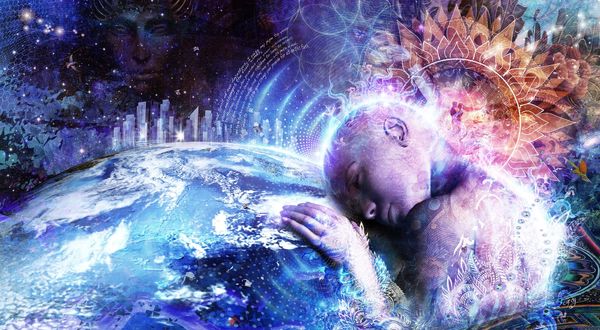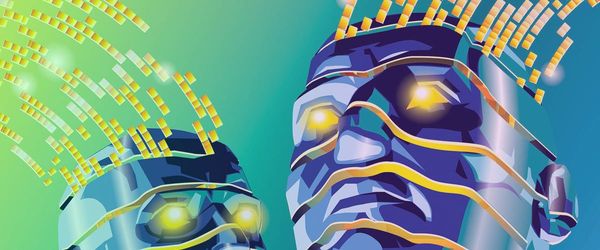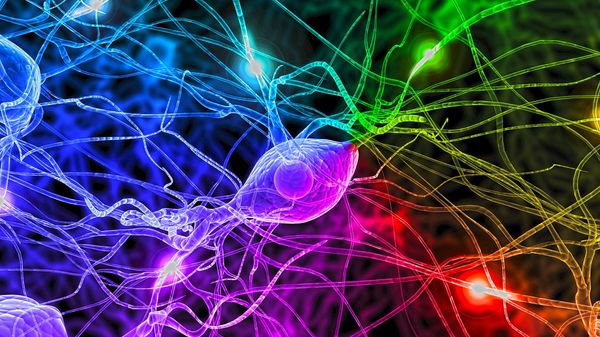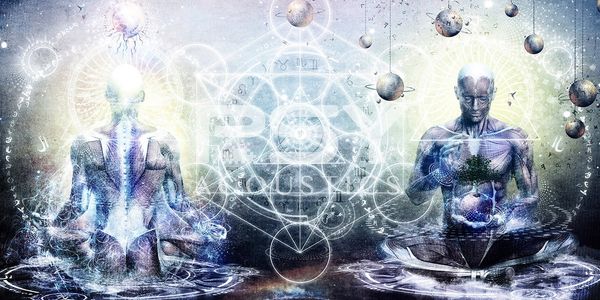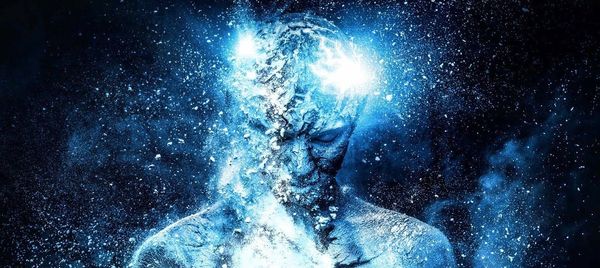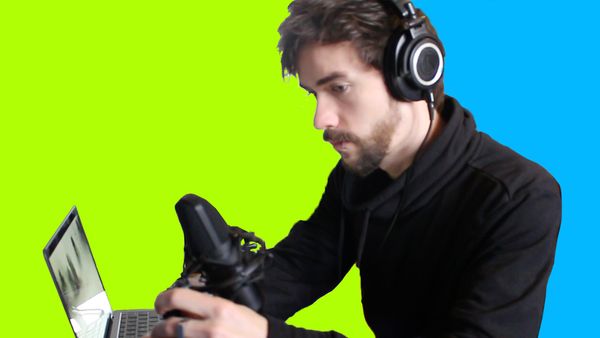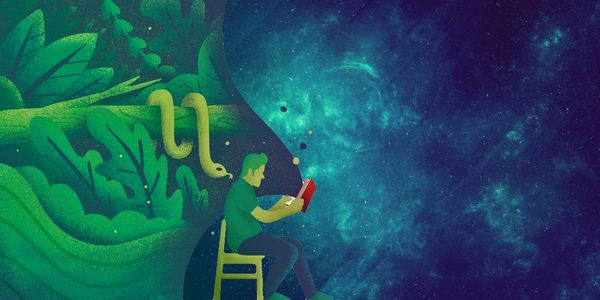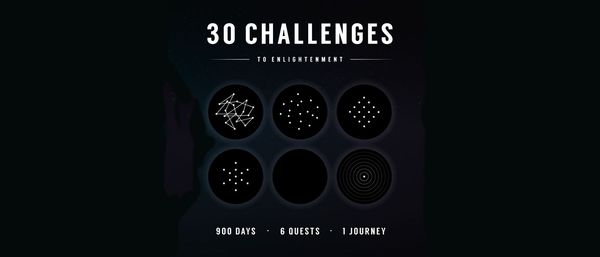Martijn Schirp • • 9 min read
Are You Brave Enough to Take the Red Pill?

“Water is free to flow around the solid rocks.”
Most of us go through life as if everything is solid. Which is obvious, since rocks, the planet and our egos seem solid. It is a common assumption that there is a solid ‘I’ inside somewhere between the eyes inside the skull which owns a body ( ‘my’ body) and believes itself to be living in a solid world that is quite separate from it. We believe in solid concepts which we use to define ourselves and use as guidelines for our behavior. We let these concepts persist and then they inevitable lead to the identification, the grasping and contracting around a solid sense of I. We will tell innumerable stories about this ‘I’, we care about it, we reinforce it, we love it, we are addicted to it and we defend it, we literally contract our muscles when it gets attacked.Because we are so busy constructing and reconstructing who we are we end up in a prison of our own making. A free man is not bound by bundles of habits accrued by the past, not bound by any condition, but is free to flow over the waves of the future. His mind is like a mirror: it doesn’t discriminate on what it will reflect or not, it doesn’t grasp or keep images he likes and reject images it doesn’t like. He knows the dust that settles on the mirror isn’t real dust, it’s the habitual thinking of thoughts and more so the identification of them that makes them seem real. He understands in his heart that nothing is either good or bad, but thinking makes it so.
The Dualism of Our Experience
Somehow this way of reasoning, the perpetual labeling of pieces of experience, dominates the way we experience life. Consequently we are left with impossible questions and treat them as being real and important. We ask ‘What is outside the universe? Where did I come from? How can we arrange the world that everything is good and nothing is bad?’ We don’t realise these are just thoughts, concepts with relative meaning that contain no absolute truth, no matter how much mental gymnastics we will throw at them. It’s like asking where the river ends and the sea starts without realising that the river never ends, only the concept of a river does. But even when science, the celebrated holy grail to knowledge, shows that it is quite evident that we are interconnected with the whole universe, we still don’t experience it anything like that. So, what is going wrong? Why do we feel alienated from this world? Why do we feel separate from the rest? Somehow this universe doesn’t seem to be a safe place to live and we have to be constantly in control.
All of what I have said above might sound really abstract to you, and that is wonderful! Because that was exactly what I was talking about. It’s exactly the belief in a concrete, abstract world that causes the suffering. The remembering self (that which we think we are) drags the experience of self (that which you are experiencing moment by moment) through all kinds of experiences while making remarks about what we should keep and what we should get rid off, keeping us in a constant state of dissatisfaction.
How and why do we do this? To find out, and to make sense of the world you literally have to go back to your senses. You can’t figure out the nature of reality if you just think about it. You have to see in what sense thoughts and other experiences are interconnected and construct the reality you are in right now. It’s kinda like looking for the red pill in The Matrix; the embracing of the sometimes painful truth of reality.
The 6 Sensations
Meditation teacher Shinzen Young has a very simple model of what we experience in any given moment. There are, of course, the five physical senses: sight, sound, taste, touch and smell. Alan Wallace argues quite convincingly that we also have a sixth sense. Not a mystical or supernatural one, but one that is easily overlooked. It’s our capacity for mental perception. Let’s take a dream for example. In a dream all five senses are dormant but we are still aware of our mental workings, that which happens in the dream. Our hopes, dreams, fears, fantasies, thoughts, feelings, mental images all have their role to play in this theater of the mind.
We habitually take what we experience by our mental perception as quite real, quite solid. But if you experience it less real, if you investigate closely what happens moment by moment, it can happen that you either get lucid while dreaming or have a non-dual awareness experience, satori, in waking life. You wake up, see everything as transitory and you will relax into it. You don’t take it as seriously and you will enjoy that which you experience much more. Even though you wouldn’t touch a fire in a dream, once you realise it’s not real and you can’t be burned, what’s left to worry about? In the same sense Buddhist monks throughout the ages have shown the depth of their understanding of reality by setting themselves on fire.
This sixth sense, the capacity of mental perception, is also the only one that can be trained (by meditation in concentration, sensory clarity and equanimity) so that it serves as a better tool to investigate your reality. It is like an attention telescope you can point to any experience and adjust the vividness, the shutter time and position in a more beneficial way.
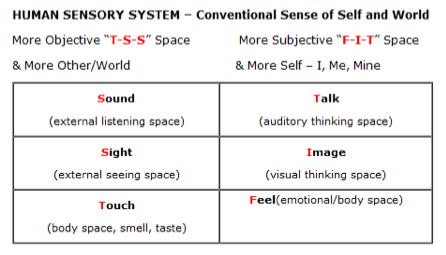
If you would consider smell and taste as special categories of touch then you will end up with this model (see diagram) Shinzen uses. The outer channels, external sounds, sights, feelings, smells and tastes, are those which we deem objective, they are outside and occupy the space in which we move our bodies around. In these outer channels science searches for theories that hold true for every observer. The inner channels are the subjective ones, inner talk, images, emotions and sensations. The conventional sense of self arises by identifying with touch, emotional feelings, thoughts and images, the T-F-I-T area. These inner channels can’t be observed by other agents (only correlation with brain activity) and so there is no way to validate and test them, and as such, they won’t constitute as proof for science.
The 3 Marks of Existence
Annica
If you investigated either one of these channels (it is possible to stay focused on just one for hours on end with extreme vividness) you would find that there are three rules that always hold true. The first one is that everything changes, moment by moment. Every channel goes through a spectrum of possibilities, like a sound that goes through different frequencies, sights that go through different possibilities of the color spectrum, smells and tastes that distinguish between different molecular configurations and feelings that register the pressure and heat. It might also be helpful to point out that there are no things that are separate from our mode of viewing. And so there are only things as experienced. For example, the photon that reaches the retina of our eyes has no inherent color, only our mode of perception gives it a color. So, first rule, everything is impermanent. Your body, because you will die. The idea of yourself, because you will change. Your experience, because it’s not always going to be so nice. And everything around is subject to change.
Anatta
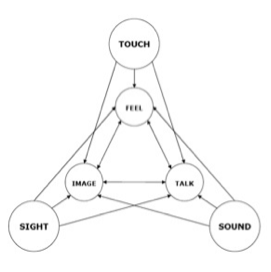
The second rule is that there is no self. Not in the way we normally think about it. There is a relative self, a special and unique manifestation of this ever fleeting universe. And this relative self, this ego-identity, has to be very strong to act in the competitive world we live in. It is important to prevent being taken advantage of or being psychologically, emotionally, socially or economically wounded. And in this regard self-improvement makes sense. But in absolute terms there is no solid you that lives inside your head, no tabula rasa (‘clean sheet’) where all your experiences are written on. There is the T-F-I-T area that constantly reinforces itself and thus appears to be solid but if you investigate rigorous enough you will find you can’t really find the I. The doer. There is just the deed and the awareness of it. And so it holds true for every channel, there are the fleeting impressions arising in an awareness.
“One moon shows in every pool, in every pool the one moon.”
This awareness, the space in which all conceptions and perceptions arise, is still not you. Since the concept of you and the feeling of you still arises within this space. There is still something ‘behind’ everything you could possible imagine or experience. This awareness, which science either doesn’t, ironically, acknowledge even exists or proclaims it is an emergent property of the brain is called throughout the ages the soul, the witness, open awareness, the space, Buddha nature, consciousness, Mind, emptiness, the mirror and many other different variations. They all point to the same thing however, everything you have ever experienced, everything you have ever known, happened in this awareness. And for most people it can come as a great relief that this emptiness, this mind, doesn’t stick. It can’t be corrupted by anything you did in the past.
So the second rule is that you don’t know how to open and close your hand, you don’t know how you think your thoughts, beat your heart, grow your toenails or, and this one might be far-fetched for now, how to float the clouds and beam the sun. It just happens by itself in the awareness of right now. There’s nothing you about it.
Dukkha
The third rule is the rule of grasping, contracting or fixation. The number one thing that distinguishes us from other animals is our capacity to reason. A simple version, yet fundamental, of how we do that is that we cut up, divide and separate everything which we experience into bits of information. When we have cut something out of our experience we deem useful and want to refer to it again then we label it. Labelling occurs when we match a sound, thinking is making sounds internally, to that thing we just divided from the interconnected whole. In a very crude sense this is the way language must have begun. Imagine yourself being one of the first Homo sapiens that had no language yet, how would you begin? Well, probably something like if you are seeing a tree, pointing to it, saying ‘ugh’ to your partner until he connects the sound with the image of a tree. From there on you can construct an ever more complex way of dividing the reality you experience and use ever more labels.
The man who desires nothing possesses the whole earth
The problem with this is not so much the fact that we do it. There is tremendous value in communication as you hopefully notice. The problem is that once we label it we start believing in it. We start to take the sounds just as true as the things they represent. It’s a very simple, basic and crude map of something infinitely complex. And this map, the remembering self, leads us to many different experiences. Some we like, some we dislike. And so we try to scheme things in a way that we only have things we like. And once we find something we like, a cut out piece of reality, we grasp it. We hold on to it. We contract around it. Then we start fixating on getting more, bigger, better, faster. We turn into what the Tibetan calls Pretas, the hungry ghosts with huge bellies but very tiny mouths. They are ghosts in the sense that they are not fully alive, not appreciating what the current moment has to offer, always anticipating something better in the future. This is the birth of desire. And everything I desire, others can’t have. This is the birth of conflict. And so, you can as yourself: What is more important, satisfying one thousand desires or conquering just one?
Now, in the same way that you can’t teach a blind man about colors, you can only understand this fully when you have seen it yourself. You will see nothing is separate from you. You are it. These thoughts I put forth in this article can only point you to the direction it represents. It is still a very crude and basic map of what is going on when you read this. But once you’ve seen it, you can’t un-see it. The road to seeing is one full of fear, anxiety, loneliness and groundlessness. These are the demons that protect the state of unmixed bliss, Sukkha, the opposite of Dukkha. To crack the illusion of control will take profound courage, are you ready to let go of everything and open your heart to the highest potential with which the thought of man can envision himself?


